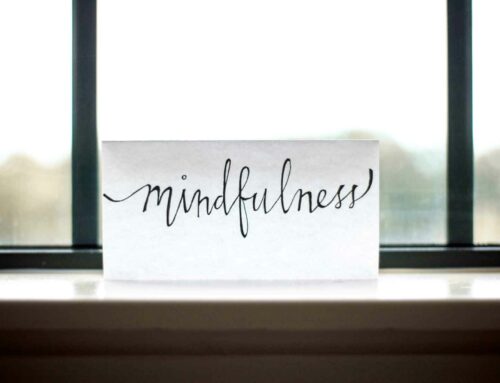Emotions don’t exist only to make you feel happy or miserable in their appropriate turns—keeping you on your toes so you never get too comfortable. Each emotion you’ve ever felt exists to serve a purpose. Emotions are an internal signal that provide us with information.
What is Emotion Regulation?
The Purpose of Emotions
Examples of Emotions and Their Functions
What is Emotion Regulation?
Emotion regulation is taking the steps to exert some control over our emotions. In DBT, emotion regulation specifically invites us to experience more pleasant emotions and decrease the frequency of negative emotions. Using emotion regulation, we’re able to understand what our different emotions are telling us about the situation we’re in.
While emotions can give us valuable information, that doesn’t mean that emotions are always right.
Goals of emotion regulation
Emotion regulation is used to increase positive feelings over time. As you practice these skills, you will feel more resilient when you experience a negative emotion.
UNDERSTAND EMOTIONS YOU EXPERIENCE
What can add to an upset feeling quicker than most anything else? Not understanding why you’re upset, or what exact emotion you’re experiencing. As you’re initially trying to identify your feelings, an emotions list can be very helpful to pinpoint the specific tertiary or secondary emotion you feel, as well as the the primary emotion that it stemmed from. When you understand each of your emotions, including the message it’s trying to give you and the urge you feel with it, you’ll be able to feel less frustrated and make more informed decisions.
REDUCE EMOTIONAL VULNERABILITY
Reducing emotional vulnerability means that you’re less likely to experience unwanted emotions. If they do start, they will hopefully be less intense and last less time than they do now. We do this by increasing positive emotions.
DECREASE THE FREQUENCY OF UNWANTED EMOTIONS
Everyone will experience unwanted emotions throughout their life, but some experience these emotions more often than others. These people are sad people. With skills that include understanding our emotions, increasing positive emotions, and reducing the painful emotions that do occur, we’re able to decrease the frequency of unwanted emotions.
DECREASE EMOTIONAL SUFFERING
We all get stuck in a rut. Hopefully, with the use of these other skills, it doesn’t happen very often. But when it does happen, there are steps you can take to decrease your suffering from shame, sadness, guilt, anger, and so on. You’ll first observe and describe, then accept, then let go of them. The basics. Then, you’ll learn how to act in opposition to painful emotions. It’s the ultimate middle finger to emotional suffering.
The Purpose of Emotions
Communication
Sometimes our brains can be slow at processing and deriving meaning from certain situations. Our bodies are often where we quickly access information about the situation we’re in and what we should do about it. In fact, sometimes our bodies are so quick to respond that we don’t even have a chance to think about what’s happening until after the fact.
Both verbal and nonverbal communications of emotions can help us connect with others and build stronger relationships.
Emotions also communicate what we’re experiencing to those around us. We don’t always need words to communicate, as emotions are easily (though not always healthily) communicated through facial expressions, body language, and mannerisms. Both verbal and nonverbal communications of emotions can help us connect with others and build stronger relationships.

Influence others
The phrase “misery loves company” has real merit, but it’s not limited to misery. It also extends to joy, disgust, and any other intense emotion you feel. An intense emotion is able to influence the feelings, thoughts, and opinions of others.
Most of us have had a day when, for no known reason, we woke up feeling negative emotions. When we get to work or school and are surrounded by positive people, we find our negativity fading away.
On the contrary, you’ve likely had a day when your own spirits are high, but someone close to you is a grumpalumpagus. Although you’ve tried to stay positive, your emotional response to this person was probably to feel a little less happy, as well.
When the emotions of the people around us are stronger than our own, our emotions will likely be adjusted toward the strongest emotion. When someone is feeling sad, ashamed, or hurt, a loving and joyful friend can help uplift their spirit. But when we gossip and speak negatively about others, we can alter how those around us feel about this person, as well.
Respond in a certain way/react in a certain way
Many emotions are self-protective. They encourage us to react or respond in difficult situations. Emotions are responsible for our “fight, flight, or freeze” reactions1. With the help of emotions, our bodies instinctively try to protect us and keep us safe in situations that seem dangerous.
The good. The bad. The nonjudgmental.
There are no good emotions. There are no bad emotions. There are just emotions. Some may be more pleasant than others, but each human emotion is equally valuable. Each one has a purpose and something to communicate.
An important reason to listen to each emotion is to evaluate whether or not it is giving you accurate information.
But emotions aren’t always right. An important reason to listen to each emotion is to evaluate whether or not it is giving you accurate information. We may feel guilt when we haven’t done anything wrong, fear when we are in no danger, or joy in an unhealthy relationship.
Even when your emotions don’t fit the situation, they are still giving you information. Unnecessary feelings of guilt might indicate that you need to practice holding boundaries for yourself. Unnecessary feelings of fear may be saying that you would benefit from challenging yourself more in this area.
When you are aware of your emotions, you can decide whether or not they fit the facts of your situation.
Examples of Emotions and Their Functions
LOVE
Love can let us know that something is going right. It could be that the overall relationship is going well, or maybe it’s just one aspect of the relationship.
GUILT
When we feel guilt, it could be a sign that we’ve done wrong and we can work to correct it. If you’re feeling guilty and you realize something is off in a relationship, the guilt is letting you know that you might need to take action to correct the relationship.
ANGER
Anger is a very common emotion that lets us know we’ve been wronged. We can use this emotion to inform us how to make the situation better. Perhaps we need to confront the person who wronged us, or simply vent to a trusted friend or family member who understands.
SHAME
You may have heard that shame is the only emotion without a purpose. While it might arguably be the most unpleasant, shame does have a purpose. Shame gives us information about our faulty core beliefs. This will look a little different for everyone. For example, if you feel shame when your friends exclude you, your faulty core belief may be “I’m not wanted”. Once you’re aware of the faulty beliefs that cause feelings of shame, you’ll be better able to process through these beliefs.
ANXIETY
There are two types of anxiety: productive and nonproductive. Nonproductive anxiety is so intense that it stops you from getting your daily tasks done. This anxiety is too intense for the situation that surrounds it. Nonproductive anxiety may cause you to feel so overwhelmed that it increases stress and decreases your ability to handle things effectively.
Productive anxiety, on the other hand, is very natural and innate in almost everyone. This anxiety helps us to be prepared and accomplish regular activities. This is the anxiety that gets us to work on time and encourages us to study for a test.
SADNESS/GRIEF
When we’re experiencing sadness and grief, we naturally want to seek out and receive support from those we love. Having support makes it easier to get through the grieving process. When we lack appropriate support, it can be very difficult to process through these emotions.
In addition to the urge to seek support, those around us experience an urge to comfort us when we appear to be sad or grieving. When we try to avoid connection or pretend we aren’t sad, it further complicates our experience and our overall emotional health.
HAPPINESS
When we experience genuine happiness, it is a signal that something is going right. We are able to feel happiness even while we are dealing with difficult life situations.
Emotional Regulation Exercises
Once you understand the function of emotions, you can use dialectical behavior therapy (DBT) skills to help with emotion regulation. These skills will encourage you to accumulate positive experiences, build mastery, cope ahead, and take care of your physical health.
We encourage our students at Sunrise to experience all emotions. Some girls come in stuck in unpleasant emotions, while others may deny ever feeling any negative emotions. For many students, it can take several months for them to feel comfortable acknowledging and expressing a variety of emotions.
Incorporating the knowledge of emotions into your life can increase your understanding of yourself and others.

One student came to Sunrise with severe trauma. She had been stuffing her true emotions surrounding the event for several years, and presented as superficially bright and cheerful. It took months for her to be able to express how angry and sad she was. We encouraged her to continue experiencing these feelings for as long as she needed to. This turning point allowed her to experience all emotions more genuinely and move forward in her treatment.
Incorporating the knowledge of emotions into your life can increase your understanding2 of yourself and others. It can help you to know what others may be experiencing and why they are reacting in a certain way. When those around you experience emotions you may not understand, don’t invalidate the emotion by communicating that what they’re feeling doesn’t matter or doesn’t make sense. Instead, pay attention to what information the emotion is giving you, and how it can help you understand this person better.
If your child is acting hostile toward you while clothes shopping, ask yourself if it’s really you that she’s angry with. If so, why? If not, what’s going on for her? Instead of assuming, ask her. Ask what she’s experiencing, and how you can help.
It’s common for anger to be conveyed when she is actually just trying to figure out how to express a different emotion. Maybe your daughter is stressed looking for items that will help her fit in at school. Perhaps she is experiencing body image issues and they’re exacerbated by clothes shopping. Or maybe she is worried about how much the clothes will cost and that she’s not worthy of such a large expense.
When working on these skills at home, pay close attention to what the emotional experience is trying to tell you. Remember that every emotion has a purpose. The more aware you are of your feelings, you’ll find that you better understand yourself and the people around you.
UNDERSTANDING EMOTIONS WORKSHEET
WE ARE COMMITTED TO THE SUCCESS OF YOUR DAUGHTER, AND YOUR ENTIRE FAMILY
Sunrise uses more comprehensive outcomes than any other fully integrated DBT program. By integrating DBT into every aspect of our program, your daughter will live the skills, not just learn them. We focus on the family to create a healthy system in which your daughter will thrive after returning home. Through therapy, activities, academics, and support, your daughter will become a healthy young woman with a passion for life.
If practicing emotion regulation and other DBT skills at home hasn’t been enough to help your daughter and family, we’re happy to discuss treatment options with you. Call us at 866.754.4807 to determine if Sunrise would be a good fit for your daughter.
Download Emotion Wheel.
References
1 “Fight, Flight, Freeze Responses” Manitoba Trauma Information & Education Centre
2 “How to Understand People: Ask, Listen, and Get Real” 6 Seconds, April 3, 2017




